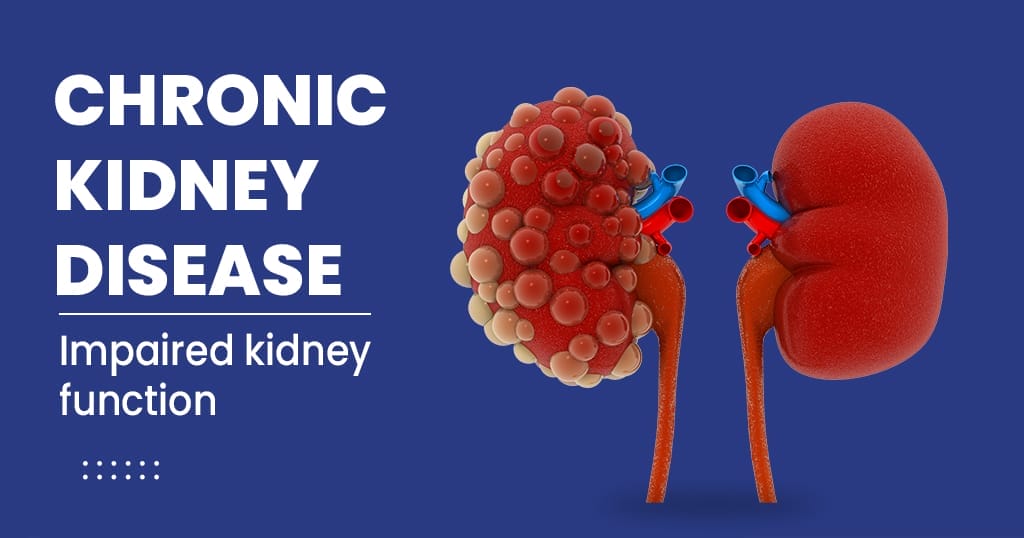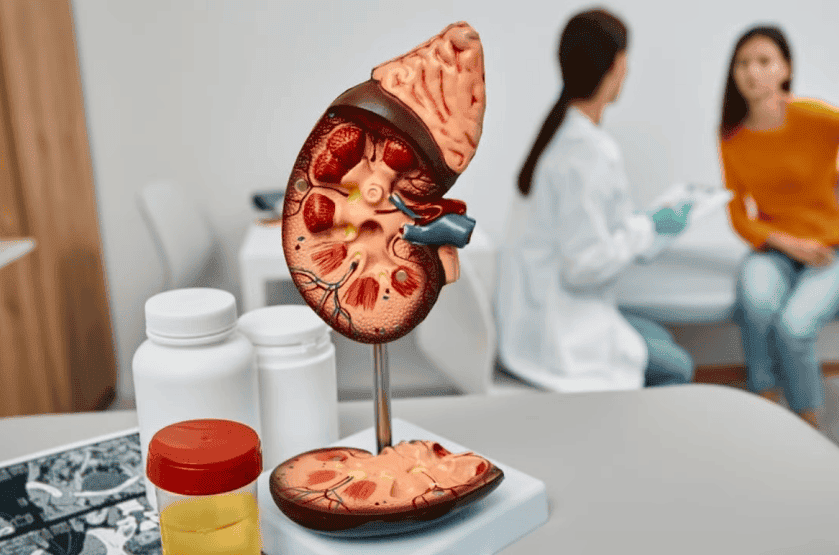Kidneys Role
How ayurveda helps to ayurvedic treatment for Polycystic Kidney Disease. Almost everyone knows our kidneys remove waste products and flush out excess bodily fluid in urine. The production of urine is a very complex step involving re-absorption and excretion. To maintain a stable balance in the body, the proper functioning of our kidneys is required.
Our kidneys regulate the body’s salt, potassium, and acid content. Besides, our kidneys are responsible for maintaining the functioning of other organs and stimulating red blood cell production.

The kidneys perform the following functions:
- Eliminate waste products from the body
- Maintain a balance of the body’s fluids
- Regulate blood pressure
- Produce vitamin D
- Produce red blood cells.
Chronic Kidney diseases
Some types of kidney abnormality, such as uncontrolled growth of creatinine levels for a long time, are known as chronic kidney disease. There are multiple causes of chronic kidney disease, such as diabetes and high blood pressure. Certain kidney conditions are inherited compared to some diseases we develop with time. Here are the causes of kidney damage.
Diabetes
When our body does not make enough insulin and is incapable of properly using insulin, this results in the growth of blood sugar levels. Diabetes can damage other internal body parts, such as the kidneys.

High blood pressure
When the force of blood against your artery walls increases, it results in high blood pressure.
Our heart and kidneys are interlinked due to the functions they perform in one place. Our heart is responsible for pumping blood across the body. Our kidneys are responsible for cleaning toxins in our blood. Due to high blood pressure, our kidney veins are damaged.

Glomerulonephritis
The inflammation of the kidney’s tiny filtering units is called the glomeruli. Glomerulonephritis can occur rapidly, for example, after strep throat. This disease is slow as it might develop over several years and affect kidney functioning.

Polycystic kidney disease
Due to the formation of ayurvedic treatment for kidney cyst, which enlarge over time and may cause kidney failure and serious kidney damage. Alport’s Syndrome, primary hyperoxaluria, and cystinuria are Other inherited diseases that affect kidney health.

Kidney stones
One of the most common diseases is kidney stones. A person suffering from kideny stones experiences severe pain in their back and side. Kidney stones can occur for various reasons, such as inherited disorder that causes too much calcium absorption from foods and urinary tract infections or obstructions.
Urinary tract infections
When a person experiences pain and burning during urination and a more frequent need to urinate, it is caused. These infections spread to the kidneys and may cause fever and pain in your back.
When a baby develops in its mother’s womb, congenital diseases may also affect the kidneys. When a valve-like mechanism in the urine tube doesn’t work. As a result, urine returns to the kidneys, causing possible kidney damage.

Drugs and toxins
Consuming large amounts of chemical-based medication for a long time harm the kidneys.
How is gene therapy used to cure diseases?
Genes contain the code that controls our body’s form and function, such as regulating basic body traits such as height, color, and hair. Any variation in the functioning of the genes can result in disease.
Gene therapy is used to improve your body’s ability and cure disease. Diseases like cancer, cystic fibrosis, heart disease, diabetes, hemophilia, and AIDS can be cured by gene therapy. Here are some ways gene therapy can help us:
Replacing mutated genes
Often genes end up diseased and stop functioning. If defective genes are replaced, this might showcase tremendous results in treating certain diseases. Replacing defective genes with healthy ones is how gene therapy works.
Fixing mutated genes
Mutated genes promote disease. It could be turned off to prevent disease and avoid inhibiting it in the future.
Making diseased cells more immune
In some cases, diseased cells are left unnoticed by our immune system, so don’t attack them as intruders. With the help of gene therapy, our immune system can be trained to protect us from cells that are a threat.

What is CRISPR?
A nuclease guidance system that enables the editing of specific DNA sequences within genomes is known as CRISPR. It enables cell experiments to validate candidate genes arising from genetic studies.
CRISPR is used in human kidney organoids derived from pluripotent stem cells to establish the first genetic disease models. This gene-edited gave new insight into the mechanisms of polycystic kidney disease.
Even though CRISPR is still under observation, it will take some more time to get an active working version of this medical advancement. The trfuture seems bright for ayurvedic kidney treatment.
The medical industry is achieving great heights. For more interesting updates and informative blogs, stay tuned with us, and don’t forget to share them with your friends and families.

